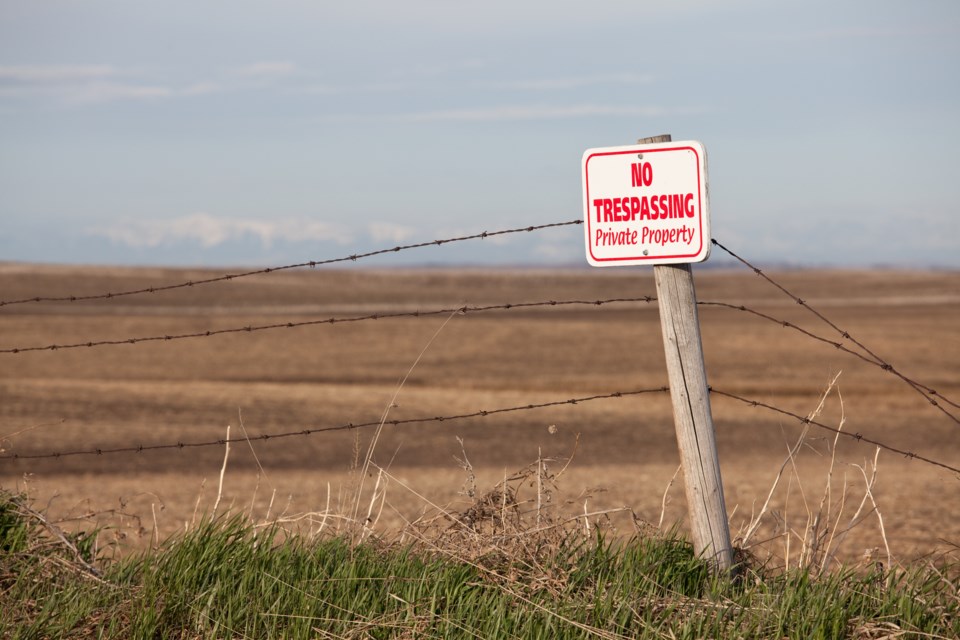Changes to trespassing legislation will be enforceable starting on the first day of the New Year. The changes to the Trespass to Property Act are meant to clarify existing laws in favour of property owners.
Being on private property without permission of the landowner is an illegal act unless an official duty is being carried out. Even then, the law does not allow for someone such as a postal worker to do anything other than drop off their mail or package before immediately leaving.
However, trespassing in Saskatchewan was slightly murky in the area of recreational purposes. Hunting, fishing, ATV riding, etc. are a major part of Saskatchewan’s rural culture, and straying onto private land during these activities has previously been seen as a mild offence best dealt with through warnings.
A landowner suing a trespasser was required to prove that the trespasser entered without permission.
"This government has worked hard to balance the rights of landowners in rural Saskatchewan with those of recreational land users," Justice Minister and Attorney General Gordon Wyant said. "I'm pleased to see the legislation come into force and I want to thank everyone who has worked and consulted with us in its development."
The legislation clarifies existing laws and introduces greater consistency in the rules regarding trespassing, regardless of intent or activity. Importantly, it shifts the responsibility from rural landowners onto individuals seeking to access their property.
Saskatchewanians are typically courteous users of the land who seek permission to access rural property for recreational purposes. This is the recommended best practice now formalized in legislation.
Under the new legislation, those wanting to access a rural landowner's property for recreational purposes will need to gain explicit consent from the owner. Consent can be provided in writing, electronically, orally, or through signage.
Concerns expressed by rural landowners about individuals who trespass on their property often relate to repeat offenders who ignore posted warnings and/or commit property damage.
The legislation provides legal protection to landowners and occupiers against property damage and the risk of agricultural diseases, and limits any liability that may arise from a trespasser's presence on their property. Instead of having to prove trespassers entered without permission, trespassers in a civil case will now have to justify their intrusion.
The new legislation increases the maximum penalty set out in the Act to $25,000 for repeat offenders trespassing on the same property and adds imprisonment up to six months as an available penalty. It will also introduce a $200,000 maximum penalty for a corporation that is complicit in a trespassing offence.
Police and provincial enforcement officers will continue to be responsible for laying criminal charges. Anyone who believes a trespass is taking place on their property is urged to contact their local police service.




